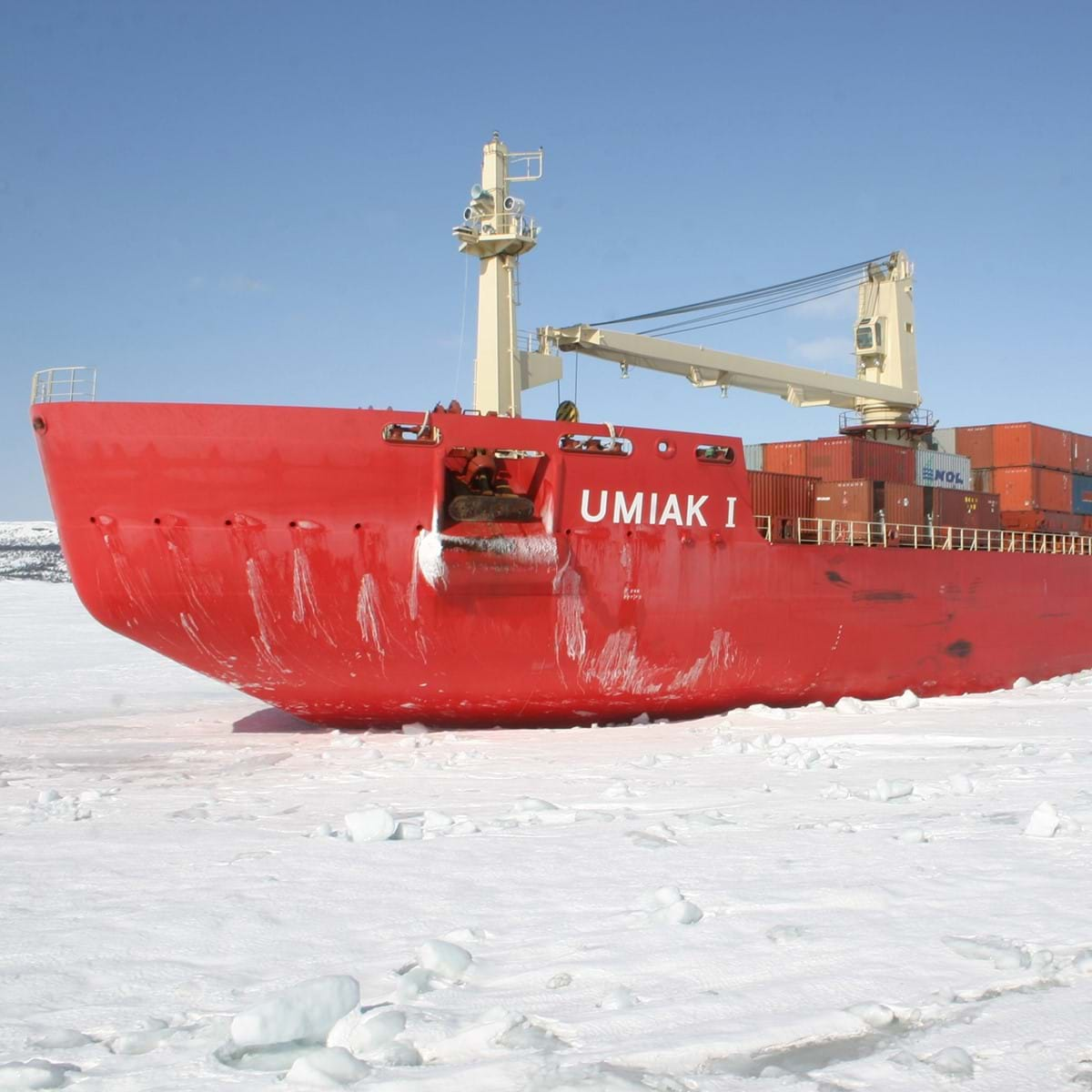
Fednav joins network of whale watchers
Montreal, Quebec, July 30, 2018 – Fednav Limited has become the first international shipowner to join the whale watching members of the Marine Mammal Observation Network (MMON).
Fednav is the world’s largest operator of ice-class dry-bulk carriers and Canada’s leading oceangoing dry-bulk shipowning and chartering group. It operates a modern and efficient fleet of approximately 100 vessels, the majority of which it owns. The crews of two of the company’s domestic vessels sailing within the Arctic will participate in the whale watching data collection project.
Training of these crews has started, with biologist and Green Marine program manager Véronique Nolet having already been aboard the Arctic at the start of this month to train the captain and team in observing and identifying marine mammals. She will soon train the team aboard the Umiak I. Already, these Arctic mariners have sent their first whale-watching data from the St. Lawrence Gulf and Estuary; north of Hopedale in Labrador; and, south of Resolution Island in the Arctic.
“Protecting the environment is a cornerstone of Fednav’s philosophy and a fundamental business value,” says Fednav’s Director of Governmental Affairs and Sustainable Development Marc Gagnon. “Therefore, it made sense to participate in this observation project that will make it possible to learn more about the movement of whales, with this knowledge definitively contributing to their conservation.”
The project engaging the maritime industry in the collection of marine mammal data was initiated by MOMM in 2015 with Groupe Desgagnés and Canada Steamship Lines, a division of the CSL Group. Green Marine then joined the project funded by the Government of Canada’s Species at Risk Habitat Stewardship Program to facilitate the networking with shipowners and to develop the appropriate training tools.
In just a few years, more than 1,800 data observations have been gathered by the network’s member vessels. The collected data is available to the public through the St. Lawrence Global Observatory (l’Observatoire global du Saint-Laurent) website at https://ogsl.ca/en.
“The addition of these two Fednav vessels is particularly interesting given that the territory sailed by both of them extends into the Arctic, permitting us to further consolidate the territory encompassed by the project since the majority of participating vessels now mainly cover the St. Lawrence Gulf and Estuary,” says MOMM’s Executive Director Esther Blier.
“Fednav makes numerous trips within this Arctic-bound navigation corridor and these many journeys will permit us to collect accurate and calibrated data throughout the season about the presence of marine mammals and their behaviour,” adds Nolet.
The addition of Fednav’s two vessels brings the fleet of vessels with trained whale watching crews to more than 50, in addition to the observations made from shorelines, the Matane, Godbout, Baie-Comeau, Rivière-du-Loup, and Tadoussac ferries, and an evolving collaboration with marine pilots. Five commercial shipowners are now taking part in the project – Desgagnés, CSL, Oceanex, Algoma and Fednav – demonstrating the maritime industry’s commitment to the environment and conservation.